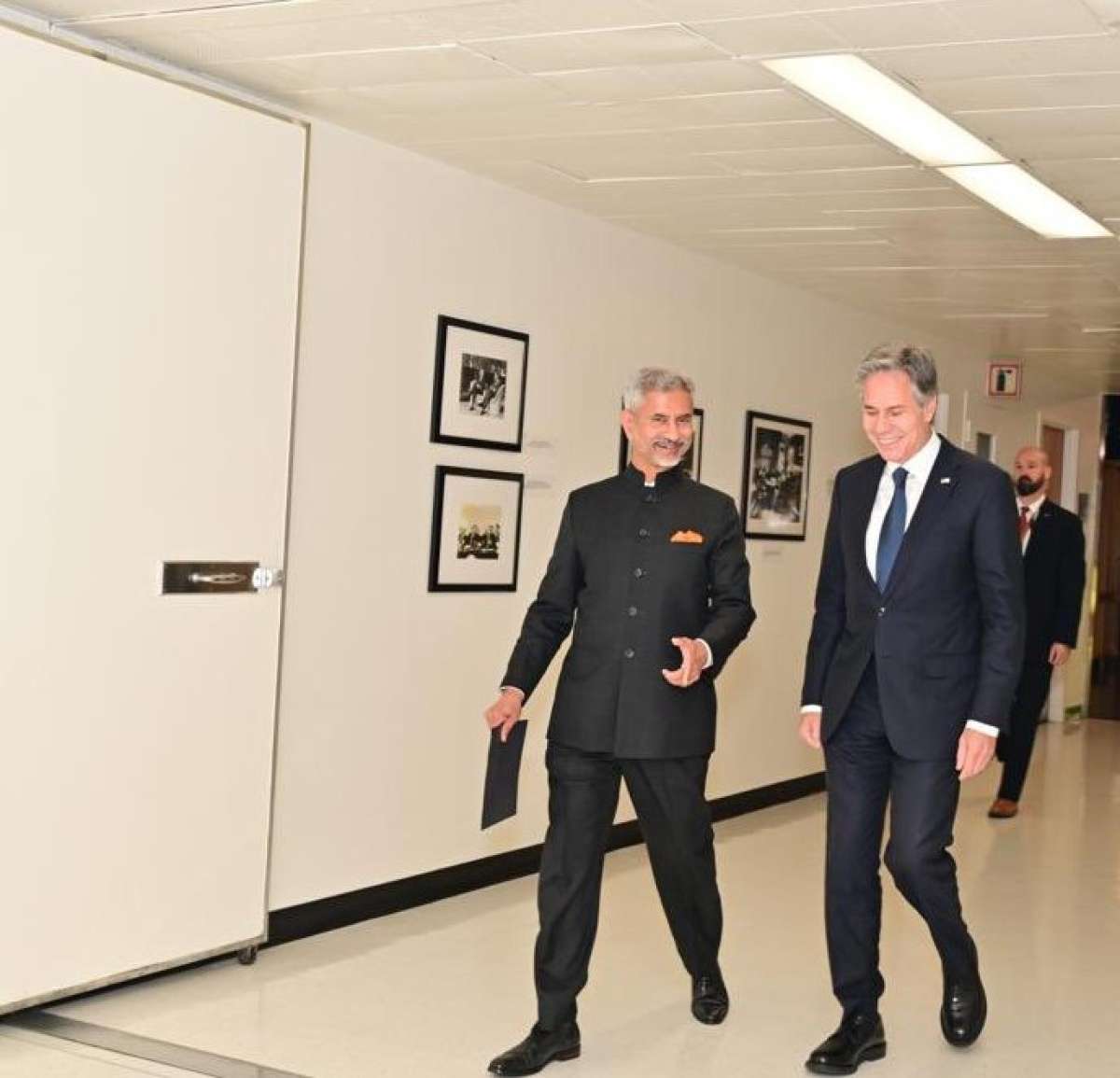Jaishankar also had meetings with the American business community. He described his visit as a very comfortable one during which he had good conversations…reports Asian Lite News
India and the United States, the world’s two largest democracies, do not share a narrow relationship only devoted to bilateral gains, but one that impacts the rest of the world, External Affairs Minister S Jaishankar has said.
He said both countries have recognised that this is a relationship of great capability and potential and there is still a lot of room for it to grow.
“If you look at the India-US relationship, it’s not a narrow relationship only devoted to each other’s gains. Our relationship today impacts the rest of the world, definitely does the Indo-Pacific,” Jaishankar told a group of Indian reporters on Wednesday as he concluded his four-day official trip to the American capital.
Starting with an interaction with the diaspora on Sunday, Jaishankar over the next four days met his American counterpart, Secretary of State Antony Blinken, Defense Secretary Lloyd Austin, Commerce Secretary Gina Raimondo, National Security Advisor, Jake Sullivan: and five lawmakers including Senator Mark Warner and Congressman Ami Bera.
Jaishankar also had meetings with the American business community. He described his visit as a very comfortable one during which he had good conversations.
“There are a lot of countries who look to us individually or bilaterally, some part of the betterment, which they hope for, the solutions which the world is searching for, in many respects,” he said.
“Bilateral, a very solid, positive, productive bilateral conversation, but framed in the context of larger global challenges. There’s a high degree of convergence on how we look at those challenges, we may articulate it a little bit differently,” he said.
“It’s natural our position’s will not be identical, our priorities may sometimes be a little bit different. But again, the good part of the relationship is today, that we understand that we have to make space for each other, and that we can work with each other, even if we do not entirely agree on every aspect of every issue,” said the minister.
Jaishankar said overall the India-US ties are in a good place.
“If you look, our trades been doing well, our political exchanges have been very solid. There might be some process issues on visas, but in terms of actual movement of people, it’s on a longer timeframe again, being quite positive,” he said, adding that the student numbers are also strong.
“So, there’s really a lot that we can look at and credit ourselves with,” he said.
“But having said that both sides have recognised this is a relationship of great capability and potential. There’s still a lot of room for it to grow. There are new avenues that we could look at. And part of the reason for the meeting with the ambassador organised with the National Science Foundation was really, how do we look at science and technology and research and collaboration and critical and emerging technologies, and really create some big broad avenues for further collaboration?” he said.
India has offered its help to the United States to address the issue of massive American visa backlogs, he said and hoped that things would improve soon.
Jaishankar raised the issue of backlog in American visa appointments during his meeting with the Secretary of State Blinken on Tuesday.
“To Secretary Blinken, I suggested that if there was something we could do from the Indian government, to help the US come and deal with this issue in a better way, we would be very open to doing it. I think there might be some issues which he might send our way,” Jaishankar said.
“I feel this is an issue where, obviously it’s mainly for the US to do, but we will be supportive and collaborative because it is an issue. We have today, and I and I heard this on a very regular basis in India,” he said.
There are families who are not able to meet, there are people who can’t keep their business appointments. There are students who are waiting for a long time. So, it’s a genuinely serious problem of some magnitude, Jaishankar said.
“But I’m very confident that with the sincerity that Secretary Blinken showed and the seriousness with which I hope they would address this and, with any support that we can provide, we hope that things will improve,” he said.
During the joint news conference with him a day earlier, Blinken explained the compulsions and the constraints of the US.
“I think he was very sincere about trying to rectify the situation,” Jaishankar said.
Jaishankar said he saw a great deal of enthusiasm on the American side.
The world economy was already under a lot of stress, because of the COVID-19 and the Ukraine conflict, and its repercussions have added to that, he said.
“Today, for a lot of countries, including us, much higher energy costs, are a source of obvious anxiety. We can see food inflation. Some countries even face availability challenges. That’s another big worry. There are justified concerns about fertilisers, access to fertilizers and trade in fertilizers. Remember, today’s fertiliser problems going to be tomorrow’s food problems. Many countries are struggling with unsustainable debt. There are trade disruptions,” he noted.
ALSO READ-USAID urges China to assist Lanka’s debt restructuring

Leave a Reply